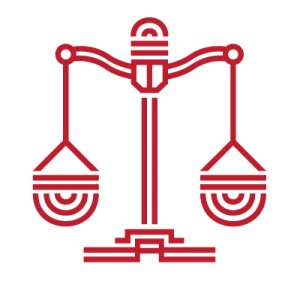Best Water Law Lawyers in Midrand
Share your needs with us, get contacted by law firms.
Free. Takes 2 min.
List of the best lawyers in Midrand, South Africa
About Water Law in Midrand, South Africa
Water Law in Midrand, South Africa, refers to the legal principles and regulations that govern the use, management, and protection of water resources in the area. As part of the City of Johannesburg Metropolitan Municipality, Midrand is subject to national and provincial water legislation, as well as municipal by-laws designed to ensure fair distribution, sustainable use, and the conservation of water for both current and future residents. Water Law covers a wide range of issues, from water rights to use and pollution control to infrastructure management, making it an essential area for individuals, businesses, and community organizations.
Why You May Need a Lawyer
There are numerous situations in which a person or business in Midrand may require legal assistance related to Water Law. For example, disputes over water usage rights between neighbors, property developments that may impact water supply or quality, or issues concerning illegal boreholes and the licensing of groundwater withdrawal are common. Enforcement actions by authorities regarding water pollution or the use of water without proper permits are other scenarios where legal help could be vital. A lawyer can help interpret complex legislation, represent clients in negotiations with government bodies, advise on compliance with environmental and municipal regulations, and resolve disputes through legal channels.
Local Laws Overview
The cornerstone of Water Law in Midrand and South Africa broadly is the National Water Act 36 of 1998, which sets out principles for allocating and managing water resources equitably and sustainably. Water is considered a national resource, and the Department of Water and Sanitation is the main regulatory authority. Local municipalities like the City of Johannesburg enforce by-laws related to water usage, wastewater disposal, and water infrastructure maintenance.
Key aspects of local laws relevant to Midrand include:
- Regulation of borehole use and groundwater extraction permits
- Restrictions on water consumption during drought or water shortages
- Rules prohibiting the pollution of watercourses and stormwater drains
- Requirements for water-wise landscaping and rainwater harvesting for new developments
- Legal responsibilities for property owners regarding maintenance and repair of water supply systems within their premises
Frequently Asked Questions
What is the primary law governing water use in Midrand?
The primary law is the National Water Act 36 of 1998, which governs the allocation, management, and protection of water resources nationally, including in Midrand.
Do I need permission to drill a borehole on my property?
Yes, you generally need to notify the municipality and may require a license from the Department of Water and Sanitation, especially if the borehole is for more than domestic use.
Who is responsible for water leaks on private property?
Property owners are responsible for repairing water leaks and maintaining water infrastructure within the boundaries of their property.
Can I harvest rainwater and use it for my home?
Yes, rainwater harvesting is encouraged, but installations must comply with municipal by-laws, particularly regarding connection to the municipal supply to avoid contamination.
What should I do if I suspect illegal dumping or pollution in a local river?
Report it to the City of Johannesburg’s Environment and Infrastructure Services Department and the Department of Water and Sanitation for investigation and enforcement.
Are there restrictions on water use during droughts in Midrand?
Yes, the municipality may impose water restrictions that limit usage for non-essential purposes such as gardening, car washing, and swimming pool filling during droughts.
Do businesses need special permits for using large amounts of water?
Businesses that use large volumes of water or discharge wastewater generally require permits from the relevant authorities. Failure to obtain required permits can result in penalties.
Can I be fined for wasting water?
Yes, wasting water, especially during periods of restriction, can result in fines imposed by the municipality under water conservation by-laws.
How can I resolve a neighbor dispute over shared water infrastructure?
Disputes can sometimes be resolved through direct negotiation, but legal advice may be necessary. In some cases, alternative dispute resolution or litigation may be appropriate.
What legal recourse do I have if water supply to my property is interrupted?
If the interruption results from municipal actions, you may lodge a complaint with the municipality. If unresolved, consult a lawyer to explore further legal remedies.
Additional Resources
For those seeking information or assistance regarding Water Law in Midrand, the following resources may be helpful:
- Department of Water and Sanitation - responsible for water regulation and licensing
- City of Johannesburg Metropolitan Municipality - administers local by-laws and water-related services
- South African Human Rights Commission - monitors access to water as a basic human right
- Environmental law NGOs and local community forums focusing on water conservation and protection
Next Steps
If you believe you require legal assistance with a Water Law issue in Midrand, start by gathering all relevant documents such as permits, correspondence, and photographs related to your issue. Identify whether your matter is urgent and if it involves potential non-compliance with current laws or regulations. Reach out to a qualified attorney who specializes in environmental or Water Law within the Gauteng region or consult with local legal aid organizations for advice. It is often beneficial to act promptly, especially if your situation involves enforcement action, potential fines, or significant damage to property or the environment.
Remember, understanding your rights and responsibilities under Water Law in Midrand is crucial to protecting your interests and contributing to the sustainable use of South Africa’s precious water resources.
Lawzana helps you find the best lawyers and law firms in Midrand through a curated and pre-screened list of qualified legal professionals. Our platform offers rankings and detailed profiles of attorneys and law firms, allowing you to compare based on practice areas, including Water Law, experience, and client feedback.
Each profile includes a description of the firm's areas of practice, client reviews, team members and partners, year of establishment, spoken languages, office locations, contact information, social media presence, and any published articles or resources. Most firms on our platform speak English and are experienced in both local and international legal matters.
Get a quote from top-rated law firms in Midrand, South Africa — quickly, securely, and without unnecessary hassle.
Disclaimer:
The information provided on this page is for general informational purposes only and does not constitute legal advice. While we strive to ensure the accuracy and relevance of the content, legal information may change over time, and interpretations of the law can vary. You should always consult with a qualified legal professional for advice specific to your situation.
We disclaim all liability for actions taken or not taken based on the content of this page. If you believe any information is incorrect or outdated, please contact us, and we will review and update it where appropriate.











